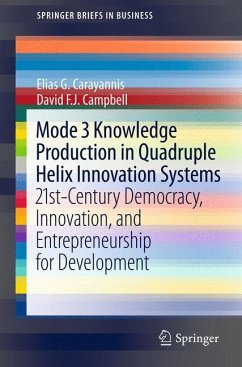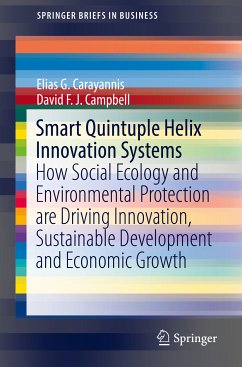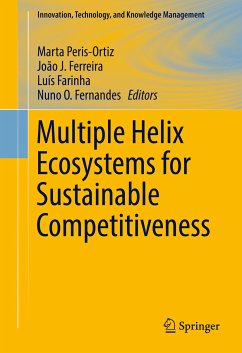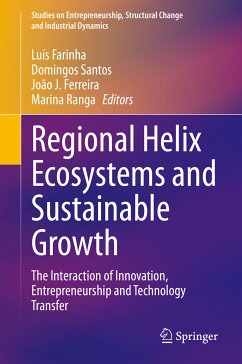
Mode 3 Knowledge Production in Quadruple Helix Innovation Systems (eBook, PDF)
21st-Century Democracy, Innovation, and Entrepreneurship for Development
Versandkostenfrei!
Sofort per Download lieferbar
40,95 €
inkl. MwSt.
Weitere Ausgaben:

PAYBACK Punkte
20 °P sammeln!
Developed and developing economies alike face increased resource scarcity and competitive rivalry. In this context, science and technology appear as an essential source of competitive and sustainable advantage at national and regional levels. However, the key determinant of their efficacy is the quality and quantity of entrepreneurship-enabled innovation that unlocks and captures the benefits of the science enterprise in the form of private, public or hybrid goods. Linking basic and applied research with the market, via technology transfer and commercialization mechanisms, including government...
Developed and developing economies alike face increased resource scarcity and competitive rivalry. In this context, science and technology appear as an essential source of competitive and sustainable advantage at national and regional levels. However, the key determinant of their efficacy is the quality and quantity of entrepreneurship-enabled innovation that unlocks and captures the benefits of the science enterprise in the form of private, public or hybrid goods. Linking basic and applied research with the market, via technology transfer and commercialization mechanisms, including government-university-industry partnerships and capital investments, constitutes the essential trigger mechanism and driving force of sustainable competitive advantage and prosperity. In this volume, the authors define the terms and principles of knowledge creation, diffusion, and use, and establish a theoretical framework for their study. In particular, they focus on the "Quadruple Helix" model, through which government, academia, industry, and civil society are seen as key actors promoting a democratic approach to innovation through which strategy development and decision making are exposed to feedback from key stakeholders, resulting in socially accountable policies and practices.
Dieser Download kann aus rechtlichen Gründen nur mit Rechnungsadresse in A, B, BG, CY, CZ, D, DK, EW, E, FIN, F, GR, HR, H, IRL, I, LT, L, LR, M, NL, PL, P, R, S, SLO, SK ausgeliefert werden.













